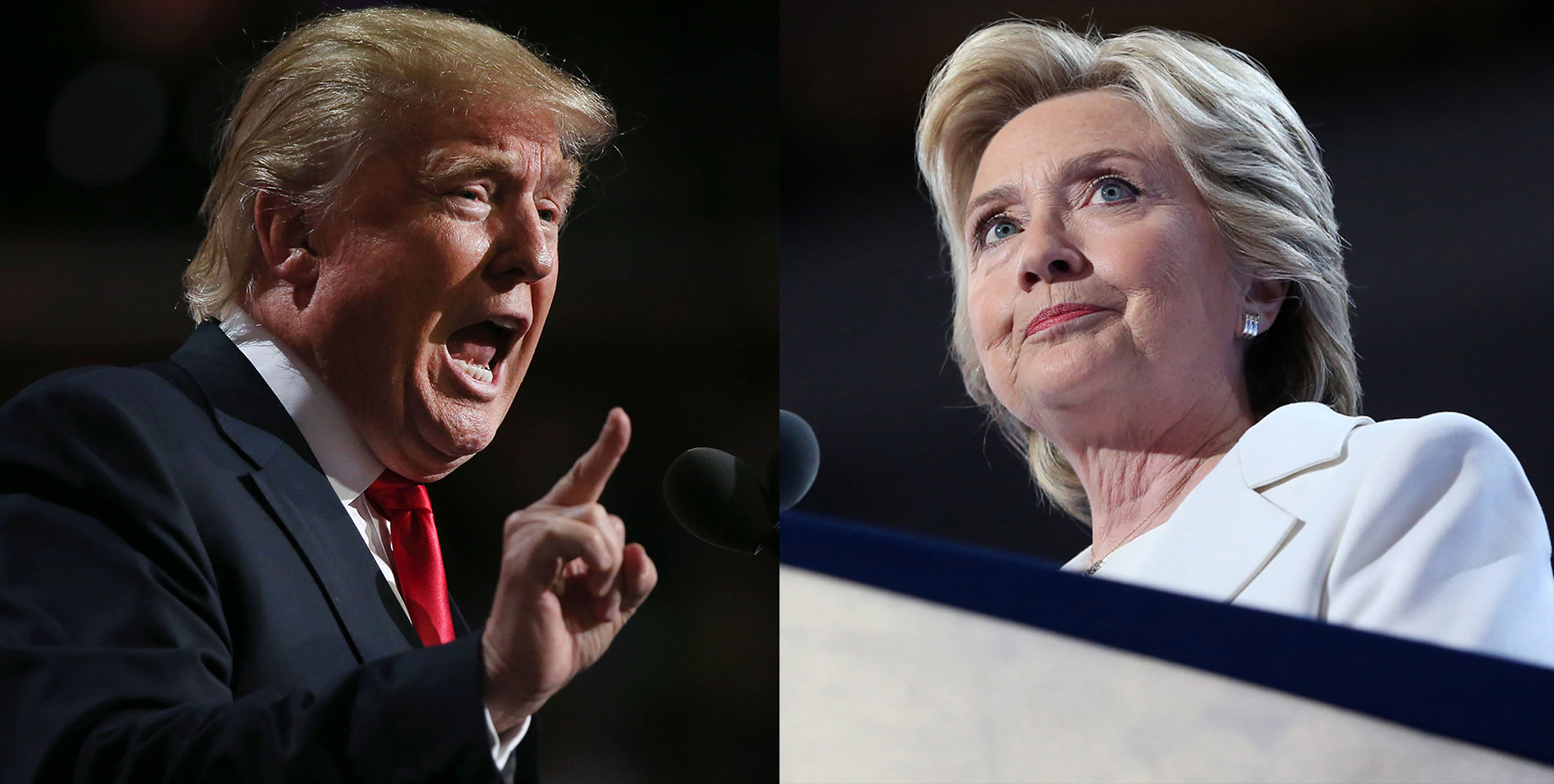Clinton’s Tale of Two Trumps: Typical Republican and Dangerous Menace

EghtesadOnline: To hear Hillary Clinton tell it, Donald Trump is both a typical Republican seeking to enrich the wealthy and a dangerous outlier unfit to serve as president.
The dueling messages are the byproduct of her running against a singular candidate who has upended the political playbook and provided an overabundance of potential attack lines. The result is Clinton painting Trump as a standard Republican on economics, and as an aberration from past nominees on the world stage by calling him a “loose cannon” who cannot be trusted to control the nuclear arsenal.
“My mission will be to make our economy work for everyone, not just those at the top. Donald Trump wants America to work for him and his friends at the expense of everyone else,” Clinton said Thursday in an economy-focused speech in Warren, Michigan. She accused Trump of espousing “a more extreme version of the failed theory of trickle-down economics,” a common Democratic attack against Republicans.
According to Bloomberg, her case was strikingly similar to President Barack Obama’s economic message in 2012 painting Republican Mitt Romney as seeking to enrich himself and his rich friends at the expense of ordinary Americans. Much like Obama portrayed Romney’s views as “extreme” in seeking “trillions more on new tax breaks for the wealthy,” Clinton on Thursday said Trump’s agenda includes “trillions in tax cuts to big corporations, millionaires, and Wall Street money managers.”
Yet the Clinton campaign’s overarching message about her opponent is that he’s an anomaly whom many Republicans are rejecting, a reckless menace who she says lacks both an understanding of the U.S. Constitution and the knowledge of international affairs needed to be the leader of the free world.
“Our founders fought a revolution and wrote a Constitution so America would never be a nation where one person had all the power,” Clinton said in her July speech accepting the Democratic presidential nomination. Trump, she said, “loses his cool at the slightest provocation. ... Imagine him in the Oval Office facing a real crisis. A man you can bait with a tweet is not a man we can trust with nuclear weapons.”
The strategy reflects disputes within the Democratic Party about whether to portray Trump as an anomaly in the GOP or as a mere reflection of the party’s longstanding agenda. Her campaign’s ongoing attempts to highlight prominent Republicans breaking with Trump has frustrated party operatives who want voters to associate down-ballot GOP candidates with their unpopular nominee.
“Unfortunately, there is a faction within Clinton world that seems to be in the mindset that they can win without anyone else, and they're promoting the idea that the focus should be on showing how Republicans are shunning Trump because he's so extreme,” former Democratic National Committee communications director Luis Miranda wrote in a private e-mail on May 22 published by WikiLeaks. “They worry that our narrative ... [will] make Trump look like everyone else, and thus a viable option.”
“I disagree with their approach,” Miranda wrote.
Courting Republicans
Clinton’s two narratives are not “necessarily inconsistent,” said Katie Packer, a former top adviser to Romney’s 2012 campaign who opposes Trump. “You can subscribe to conservative Republican orthodoxy on business and fiscal matters and still be dangerous on foreign policy and ill-suited temperamentally.”
“I'm not sure it’s the right strategy,” Packer said. “If I were her I would focus my campaign on ‘Trump is dangerous’ and then define the ways: culturally, fiscally, and on the world stage. And then I would do everything to be the safe alternative.”
Clinton’s aim is to court various constituencies: working-class voters attracted to Trump's brash style but wary of Republicans, as well as women and moderates who may be amenable to the GOP but dislike Trump. The economic attack that Clinton is seeking to replicate was successful for Obama—surveys in 2012 showed voters thought the president was more likely than Romney to care about people like them.
Stephen Miller, a senior policy adviser to Trump, lambasted Clinton’s characterization.
“The only consistent thing about Hillary Clinton is that she repeats whatever lie her donor-funded advisers give her,” Miller said. “She's an insider protecting insiders. She gets her friends rich while risking the lives and livelihoods of innocent Americans.”
Clinton campaign spokesman Jesse Ferguson said her message was consistent.
“Whether it was his business background or his economic policy agenda, they all add up to the same thing—putting Donald Trump first and risking economic devastation,” Ferguson said in e-mail. “His unrealistic and unworkable economic ideas that are designed to only line his own pocket with millions from the taxpayers are just the latest in a long line of con-jobs by Donald Trump and the latest of his reckless ideas that put the economy at risk proving he's unfit for office.”
Republican operative Rick Wilson said that Clinton, as a wealthy public figure, is a flawed messenger to paint Trump as the candidate of the rich. Yet he and other GOP strategists critical of Trump said she may succeed.
“When a candidate has low favorables like Trump, pretty much anything works. It’s like a patient with a faltering immune system: You get sick easily and stay sick longer,” Stuart Stevens, the top strategist for Romney’s campaign, said in an e-mail. “Majority of voters think Trump doesn't have right temperament to be president. Tax cuts for the rich never test well. ... For her, it’s particularly useful to bang Trump on tax cuts for millionaires as it blocks any drift to Trump from [Bernie] Sanders voters.”


